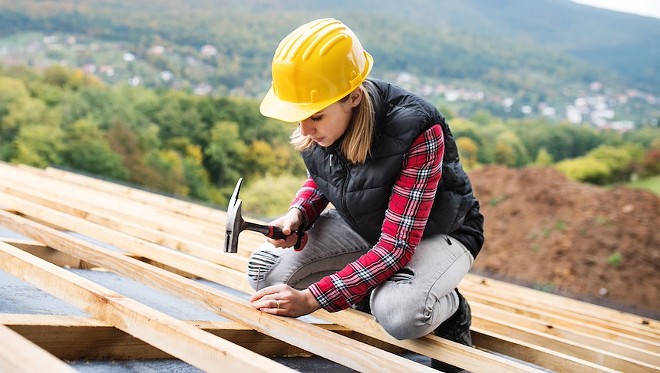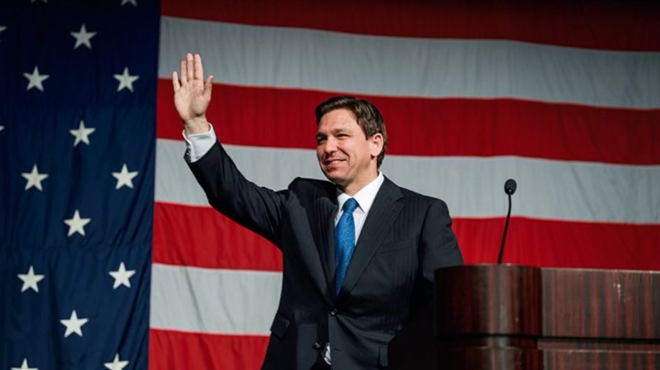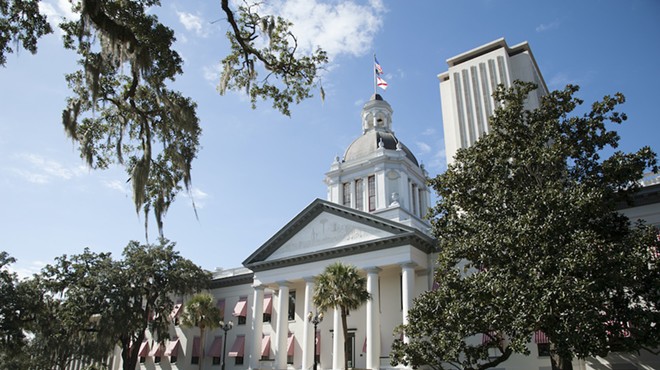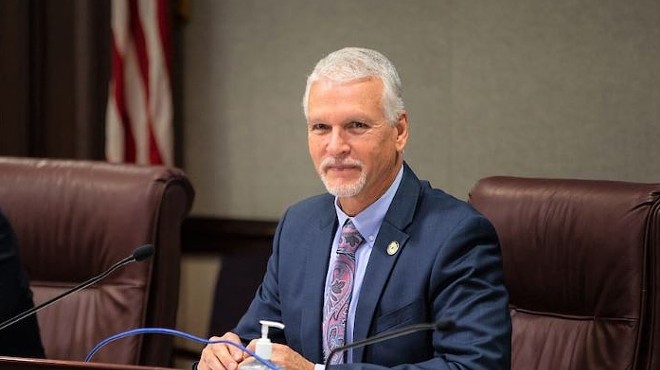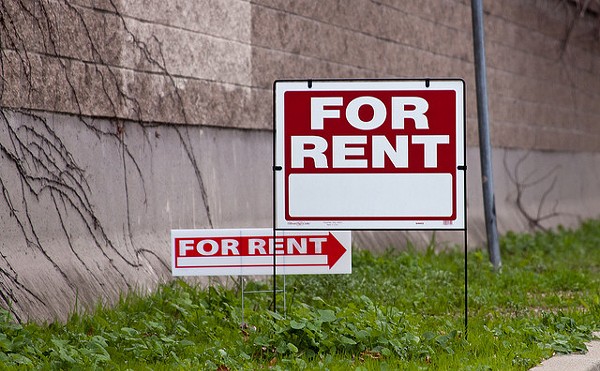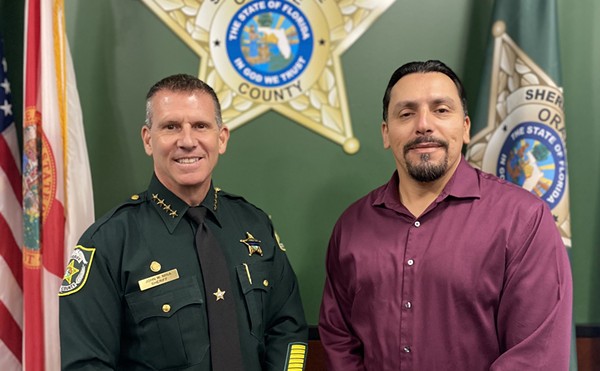A Florida employment lawyer and policy analysts with the Florida Policy Institute warn that a new law affecting child labor protections on residential construction sites in Florida, effective July 1, could spell trouble for home builders that employ minors, if they’re not careful.
Florida’s House Bill 917, sponsored by Republican State Rep. John Snyder and supported by trade groups representing construction contractors, specifically loosens restrictions on child labor in Florida by allowing minors aged 16 and 17 to work certain jobs on residential construction sites that are currently barred under both federal and state law.
Under state law previously, most construction jobs were broadly considered too “hazardous” or “prohibited” for youth under 18, identified as “dangerous to the health and safety of minors.”
Previous rules on hazardous work in Florida therefore strictly prohibited minors of any age from working on construction sites — commercial or residential — with limited exceptions for minors aged 14 and older who are working clerical or sales jobs, or for minors 16 and older who are working on the job site as part of a government-approved student learner or apprenticeship program.
The new law essentially expands the kinds of work that minors 16 and older are allowed to do on residential construction sites only, provided the teenager has obtained OSHA 10 certification and is working under the “direct supervision” of an adult aged 21 or older who has at least two years’ of experience on the job.
Despite opposition from those critical of loosening child labor protections, the bill passed the Florida Senate unanimously in a 32-0 vote with bipartisan support in early March.
The bill, which also aims to bolster career and technical education programs in schools, later cleared the Florida House in a bipartisan vote of 105–3, with a couple dozen Democrats later changing their votes within hours.
Understanding federal law — and how it affects new state rules
While the actual dangers of this work for minors were hotly contested by supporters and critics of the legislation during Florida’s 2024 legislative session, what might be of greater interest for home builders, come July 1, is how to interpret what it does and does not allow, and the importance of ensuring they are in compliance with federal rules on putting minors to work, too.
Under federal law, if state regulations on child labor are less restrictive than federal regulations, the federal regulations supersede state law and need to be followed.
This means a federal investigator could still levy fines on employers that violate federal child labor regulations, regardless of what state law says.
This is a problem that business owners in Iowa — particularly restaurant owners — are currently in crisis mode over, following the enactment of a similar law loosening child labor restrictions there last year.
“They [federal investigators] are taking massive punitive action against Iowa restaurants who are following the new state youth employment hours instead of the federal regulation on hours. THEY DO NOT RECOGNIZE OUR NEW STATE LAW,” wrote the Iowa Restaurant Association in a message recently emailed to its members, obtained by the USA Today Network’s Des Moines Register.
Several states, including Iowa, loosened restrictions on child labor laws last year, albeit in different ways than here in Florida. Iowa’s law, for instance — which was also supported by industry trade groups — changed hazardous work requirements for 16- and 17-year-olds, but went a step further by also legalizing jobs in woodworking and demolition, and allowing those older teens to operate power saws.
This work is illegal for minors to perform under federal law, and the feds confirmed it.
According to the Register, however, Iowa employers making the most noise right now are restaurant owners who changed their employment practices to match loosened restrictions on hours that were also approved through the new law.
What does federal law say about youth employment on construction sites?
While Florida lawmakers’ recent changes to child labor law were less extreme, Andrew Zelman — a labor attorney at Berger Singerman’s Fort Lauderdale office — and others critical of the new bill say they are concerned a similar issue could crop up here, if home builders and construction contractors aren’t careful.
“I think it’s going to be a disputed issue that will probably find itself at least at some point in the courts,” Zelman told Orlando Weekly in a phone interview about the upcoming changes.
Under the new law, employers are still prohibited from allowing minors of any age, including 16- and 17-year-olds, from performing work “on any scaffolding, roof, superstructure, or ladder above 6 feet” (as they were previously).
However, the new law does not explicitly prohibit minors from working on any roofing-related operations. Under the federal Fair Labor Standards Act, which includes standards related to child labor, minors of all ages are prohibited from performing any roofing operations or work “on or about a roof.”
A spokesperson for the U.S. Department of Labor confirmed to Orlando Weekly that this includes roofing-related operations performed on the ground.
Under federal law, roofing occupations that are prohibited for minors outside of a student learner or apprenticeship program include:
all work performed in connection with the installation of roofs, including related metal work such as flashing, and applying weatherproofing materials and substances (such as waterproof membranes, tar, slag or pitch, asphalt prepared paper, tile, composite roofing materials, slate, metal, translucent materials, and shingles of asbestos, asphalt, wood or other materials) to roofs of buildings or other structures. The term also includes all jobs on the ground related to roofing operations such as roofing laborer, roofing helper, materials handler and tending a tar heater
Furthermore, work “on or about a roof” also includes:
all work performed upon or in close proximity to a roof, including carpentry and metal work, alterations, additions, maintenance and repair, including painting and coating of existing roofs; the construction of the sheathing or base of roofs (wood or metal), including roof trusses or joists; gutter and downspout work; the installation and servicing of television and communication equipment such as cable and satellite dishes; the installation and servicing of heating, ventilation and air conditioning equipment or similar appliances attached to roofs; and any similar work that is required to be performed on or about roofs.
Florida’s HB 917 was amended multiple times throughout the legislative session to add more protective language for minors on the job. An earlier version of the proposal, drafted by lobbyists for the Florida Home Builders Association and Associated Builders and Contractors of Florida, would have allowed minors to work on roofs, scaffolding, and superstructures with no height limits — a clear violation of federal law — but that language was later cut out.
The final version specifically states that no minor may be employed in any job that is strictly prohibited under the Fair Labor Standards Act, any Occupational Safety and Health Administration (OSHA) rule, or federal law related to minors in the workplace.
But some, including policy analysts with the Florida Policy Institute, a progressive think tank, believe this isn’t laid out as clearly as it should be.
“While legislation (HB 917) recently signed into law does include language referencing the Fair Labor Standards Act, lawmakers failed to make clear that teens cannot work anywhere near a roof, including handling materials on the ground,” Alexis Tsoukalas, a policy analyst for the Florida Policy Institute and critic of the law, told Orlando Weekly in a statement. “This leaves too much open for interpretation and could be a source of confusion for businesses in this state.”
This concern was voiced to lawmakers ahead of the legislation’s final passage by both Tsoukalas and her colleague, Cindy Huddleston, who told lawmakers it was “imperative” to make it clear that no Florida employer can hire teens to do any kind of roofing work.
“As it stands, House Bill 917 leaves too much open for interpretation,” Huddleston warned lawmakers during public testimony in February.
The bill was not amended to address this concern prior to its passage.
When reached for comment, Florida Home Builders Association lobbyist Rusty Payton, who worked on this bill, ignored Orlando Weekly's question of whether the FHBA had been offering information to their members about how to ensure they followed both state and federal law, to avoid potential trouble down the road.
“At the end of the day, the intent of this legislation is to provide Florida students with the kind of invaluable experience that is only obtained through hands-on learning,” said Payton, adding that “no interpretation of this law is intended to usurp federal guidelines and standards put forth by OSHA.”
While the Florida Policy Institute has said their efforts to fine-tune the language to be in compliance with federal law were rejected, Payton insists care was taken to “insist” employers comply with all federal safety measures and precautions.
Another child labor-related bill in Florida, House Bill 49, was similarly approved this spring and will take effect July 1 as well.
That bill largely affects the number of hours minors aged 16 and 17 can legally work during the school year, and does not conflict with federal law because federal law does not have restrictions on the number of hours or days worked per week for minors older than 15. Federal law only regulates work hours and breaks for minors under 16.
Safety and other concerns voiced by critics
Supporters of the construction bill, including industry lobbyists with the Florida Home Builders Association and Associated Builders and Contractors, proudly touted the “safeguards” in the bill that would protect young workers from harm.“There’s no reason that we shouldn't be giving people very safe and supervised opportunities,” said Carol Bowen, chief lobbyist for the ABC of Florida, who also lobbied to get a new law banning local workplace heat protection mandates across the finish line.
Some workers in the trades, however, told state lawmakers during public testimony on the bill that such safeguards were insufficient.
“I'm familiar with construction job sites, and job sites — even residential job sites — are dangerous,” Jim Junecko, a certified tower crane operator and president of the West Central Florida Labor Council, said during public testimony on the bill. “We don't need a 16-year-old kid — that's what they are, they're kids at age 16 — on a job site.”
The construction industry drives the highest number of unlicensed activity complaints in the state, according to the state department that enforces child labor law, and accounts for the highest number of workplace fatalities.
Young workers are also more likely to be injured on the job, and may be less likely to speak up if their boss isn’t paying them what they’re owed, or works them overtime without extra pay. Such unlawful behavior by employers — wage theft — is common in the construction industry. One of Florida’s state Senators, a roofing contractor who had his own run-in with federal regulators, knows this personally.
Furthermore, with lack of enforcement capacity throughout the state, it’s unclear whether employers who fail to actually provide such safeguards will even be caught.
According to a state employment portal, there are just nine staff in Florida dedicated to child labor law enforcement, up from seven in December, and not all are necessarily tasked with scoping out work-sites. There is currently one child labor law-related job vacancy in the Fort Myers area. In the last month, the department filled another vacancy for a government analyst position at the headquarters of the Florida Department of Business and Professional Regulation, which enforces child labor laws.
Federal regulators, through the U.S. Department of Labor's Wage and Hour Division, are also stationed in Florida to help enforce federal labor laws, but according to a department spokesperson, the number of enforcement staff over the last seven months has declined, from 47 investigators in December, to 41 in June — and they're tasked with ensuring employer compliance with a number of federal rules, not just child labor standards.
Furthermore, because federal law specifically covers only organizations or enterprises that do more than $500,000 a year in business (with limited exceptions), the nonpartisan Florida Policy Institute estimates that thousands of construction contractors in the state of Florida would not be bound by the standards of the FLSA as referenced in the Florida legislation.
Some Republicans asserted, however, that concerns about safety had been “overblown.”
“To think that 70 years ago we had 17-year-olds storming beaches in Normandy, but here today they can't climb a 6-foot ladder,” scoffed Florida Rep. Spencer Roach, R-North Fort Myers, during the bill’s first committee hearing in January. “I think those concerns are wildly overblown, and I would support 16- and 17-year olds being able to climb a 6-foot ladder.”
The legality of such work under federal law, however, is questionable, and is still currently illegal under state law, too.
What employers should know ahead of July 1
First and foremost, if you are an employer or construction contractor who hires minors (or plans to do so), you need to remain in compliance with both state and federal law to avoid potential troubles with regulators.
“When states pass laws that are less restrictive than federal law, the federal law still applies. When states pass laws that are more restrictive than federal law, the state law applies,” a spokesperson for the Department of Labor told Orlando Weekly in a statement. “Whichever law offers the most protection to workers prevails.”
Florida law imposes civil fines of up to $2,500 per violation for employers who violate child labor restrictions. Violators can also face a second-degree misdemeanor charge.
Under federal law, violators may be fined up to $11,000 per minor.
Child labor violations by themselves do not have a private right of action — that is, a parent or child cannot sue an employer over a violation of child labor law, unlike violations of other wage and hour laws, such as minimum wage requirements.
However, under Florida’s workers’ compensation laws, employers who do violate child labor laws can face up to double damages if a minor they employ is injured on the job while performing work in violation of child labor restrictions.
Zelman, the labor attorney, said it’s also important for employers to do proper recordkeeping — filling out timesheets, having records of minors’ date of birth, their pay and meal breaks — to avoid fines for noncompliance.
A Winter Park bakery formerly known as Bread & Co. was cited by federal investigators after they found the bakery had illegally engaged a 13-year-old as an unpaid volunteer, allowed the teenager to operate a power-driven bread slicer, and failed to maintain accurate records of the teen’s pay and hours worked, in violation of federal law.
Employers can learn more about what House Bill 917 does and does not allow on the Florida Department of Business and Professional Regulation’s website, available here.
Follow us: Apple News | Google News | NewsBreak | Reddit | Instagram | Facebook | Twitter | or sign up for our RSS Feed

